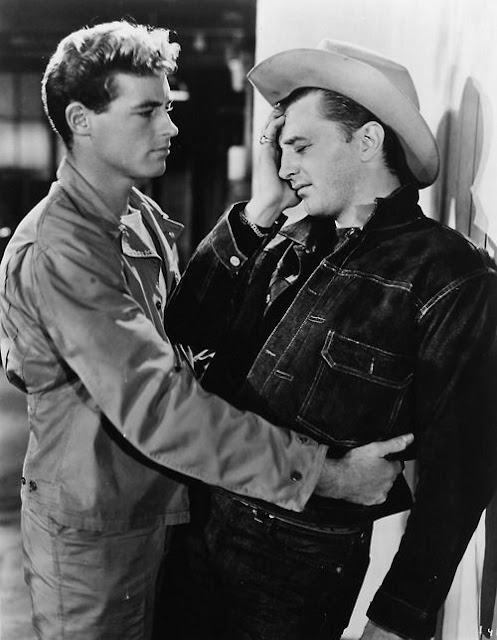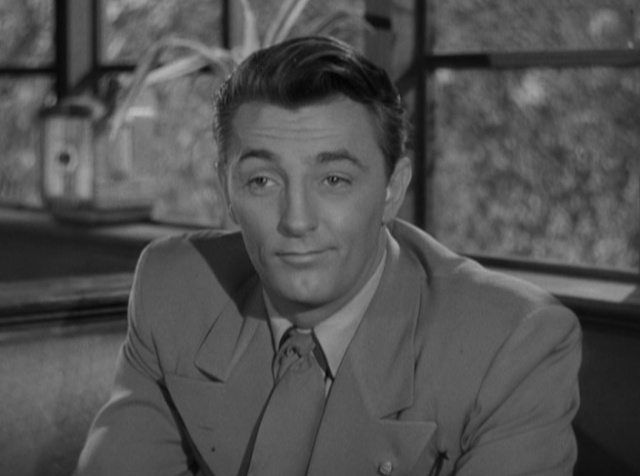"I dedicate this film to the dead of the war of tomorrow, who will no
doubt watch it skeptically without recognizing in it their own image." -
Abel Gance
Yesterday my husband and I had a lovely conversation with a 93 year old WWII veteran who fought on D-Day in 1944. He told us about the time when he went back to Normandy for the 50th anniversary of the battle. My husband asked if visiting was difficult for him to go back and he replied "not really." In fact during the most of the conversation this vet brushed off any notion that anything to do with his service, including the dwindling size of his infantry, had any bad effect on him. This vet was either impervious to the brutalities of war or was still living with the decades old stigma of shell shock and the societal pressure of being a brave soldier.
But what about those who were affected and showed it openly? Director Abel Gance's J'Accuse (1938) shines a spotlight on the mental anguish caused by war. Victor Francen plays Jean Diaz, a soldier during WWI, is having an affair with the wife of fellow soldier Laurin (Marcel Delaître). It's the eve of the armistice and Laurin's troop has been chosen by lots to fight at Ravin des Dames, a battle that will lead to certain death. Laurin gives Jean a series of letters to send to their shared love Edith (Line Noro). Jean decides instead to swap places with another soldier and fight alongside Laurin and the others in the troop. Jean is the sole survivor and he returns to Edith. But he discovers he's lost his love for her and instead focuses his energy on preventing another war. Twenty years pass and the threat of a second great war is looming. Jean, who displays photos of the lost soldiers in the form of a cross above his bed, is haunted by the dead. His mental state spirals out of control. When Jean hears the news of the impending war he summons the dead from the graves in an epic and fantastical finale.
"I hope they have enough trees to make crosses." - Morat
I've read a few summaries of this film and many focus on the love triangle between Jean, Laurin and Edith. While this is certainly part of the plot it's not really the heart of the story. J'Accuse is Gance's anti-war manifesto. It comes almost 20 years after his silent version of the story, released in 1919 focusing on WWI. Gance remade the film in a sound version but chose to expand the story and bridge both WWI and the impending WWII. It's a fantastic film yet it's also bleak, unrelenting and difficult to watch. I had started and stopped the film several times. After my conversation with the WWII vet I was in a better head space to tackle the film and watched it all the way through.
J'Accuse is my first Abel Gance film but it certainly won't be my last. I've had my eye on Napoleon for a while and will be watching the original J'Accuse very soon.
 |
| Jean Diaz (Victor Francen) at the tombs of his fellow soldiers |
The title is inspired by Jean accusations. He blames Europe of not learning from the past war to prevent a future one. I was particularly taken by Jean's speech, delivered just before his downward spiral. I've transcribed it below:
"I accuse the war of yesterday of making the Europe of today. And I accuse the war of tomorrow of preparing its destruction. I accuse mankind of failing to learn the lessons of the last catastrophe, of waiting with folded arms for the next war. I accuse the short-sighted, the egotists, of having allowed Europe to be divided instead of building a permanent alliance. And I accuse the men of today not only of failing to understand, but of laughing when reminded of the most beautiful expression on earth: love one another. I accuse you same men of ignoring the voices of the millions who died in the war and who have cried out to you for 20 years Stop! You're taking the same terrible path!" - Jean Diaz
J'Accuse was released a few months before the start of WWII. According to Gance's end credits, the film's success demonstrated that France wanted peace not war. I've always been drawn to these types of stories. I credit Dalton Trumbo's anti-war novel Johnny Got His Gun for my love of literature and for influencing my politics. And in many ways it contributed to my passion for film. I was particularly fascinated by how Gance focuses on the dead and how their sacrifice should never be forgotten. The film is worth watching not only for it's message but also for the wonderful cinematography, the fine performance by lead actor Francen and an early depiction of zombies, who differ greatly from our modern representation of the paranormal.
Even if you're put off by the subject matter, I encourage you to tackle this film. J'Accuse is an underrated classic and important time capsule of world history.
J'Accuse (1938) is available on Blu-Ray and DVD from Olive Films. Thank you to Olive for a copy of this film to review.





















